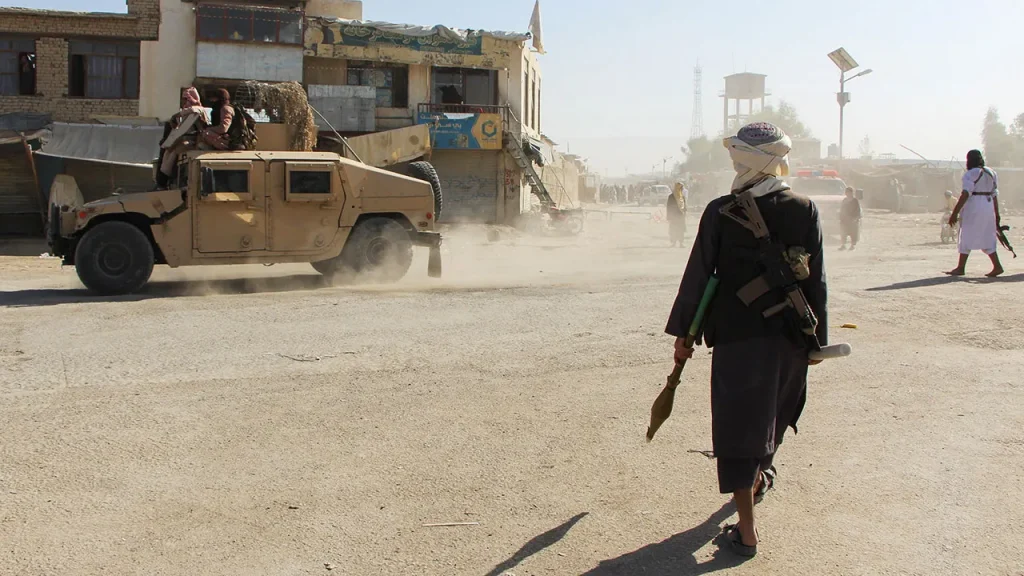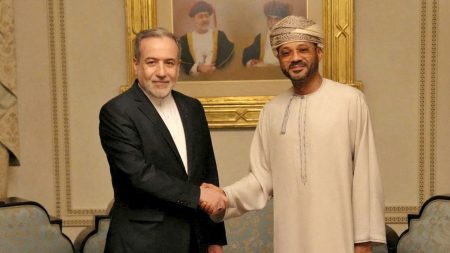Pakistan and Taliban Agree to Temporary Ceasefire Amid Escalating Border Tensions
In a significant development on Wednesday, the Pakistani government and Afghanistan’s ruling Taliban have reached an agreement for a 48-hour ceasefire following a series of deadly clashes along their shared border. These confrontations, which erupted over the weekend, resulted in the deaths of more than a dozen civilians and troops, marking the worst conflict between the two sides since the Taliban seized control of Kabul in 2021.
While the specific terms of the ceasefire remain unclear, Pakistan’s foreign ministry is reportedly making efforts to engage in dialogue to resolve the complex and multifaceted conflict. This temporary truce comes at a critical moment as tensions have escalated dramatically in recent days. The 1,600-mile-long border between Pakistan and Afghanistan has long been a flashpoint for territorial disputes, but the situation has grown increasingly volatile since the Taliban’s return to power. Islamabad has frequently accused the Taliban leadership of providing sanctuary to anti-Pakistan militants, a claim that has further strained relations between the neighboring countries.
According to Taliban sources, Pakistani forces launched attacks in the Afghan border city of Spin Boldak in Kandahar Province, resulting in more than a dozen civilian casualties and approximately 100 wounded. Conversely, Pakistan has reported that four of its civilians were wounded in attacks by Taliban forces in Chaman, the district directly across from Spin Boldak. The conflict has not been limited to a single location, as additional fighting between troops and militants reportedly broke out in Pakistan’s Orakzai district to the north. Pakistani authorities stated that six paramilitary soldiers were killed and two security officials wounded in this separate incident, while nine militants were also killed during a search operation in an area that had previously been targeted by militants last week, resulting in the deaths of eleven Pakistani soldiers.
The complexity of this border conflict is deeply rooted in historical grievances, territorial disputes, and security concerns. The porous border between the two countries has been difficult to monitor and control, allowing militant groups to move relatively freely between Afghanistan and Pakistan. Since the Taliban’s return to power in Afghanistan, Pakistan has faced increased security challenges from groups operating in the border regions. The Pakistani government has been particularly concerned about the activities of Tehrik-i-Taliban Pakistan (TTP), also known as the Pakistani Taliban, which has historical ties to the Afghan Taliban but operates as a separate entity focused on targeting the Pakistani state. These security concerns have led to heightened military presence and operations along the border, contributing to the current tensions.
The humanitarian impact of this conflict cannot be overlooked, as civilian populations on both sides of the border have been caught in the crossfire. Reports from the region suggest widespread displacement, destruction of property, and limited access to essential services for affected communities. The border regions are home to diverse ethnic populations, including Pashtun communities that have historical and cultural ties transcending the international boundary. These communities have often borne the brunt of military operations and militant activities, leading to complex humanitarian challenges that require immediate attention from both governments and international humanitarian organizations.
Looking forward, the 48-hour ceasefire offers a brief window of opportunity for diplomatic engagement to address the underlying issues fueling this conflict. While former U.S. President Donald Trump recently suggested he could help mediate the situation, neither side has indicated a role for external mediation at this time. The ceasefire’s success will largely depend on both parties’ willingness to engage in meaningful dialogue and address legitimate security concerns while respecting territorial sovereignty. The international community, particularly regional powers and organizations, may need to play a supportive role in facilitating discussions and providing humanitarian assistance to affected populations. As both Pakistan and Afghanistan navigate this delicate situation, the path to sustainable peace will require patience, compromise, and a genuine commitment to resolving longstanding grievances through diplomatic channels rather than military confrontation.















